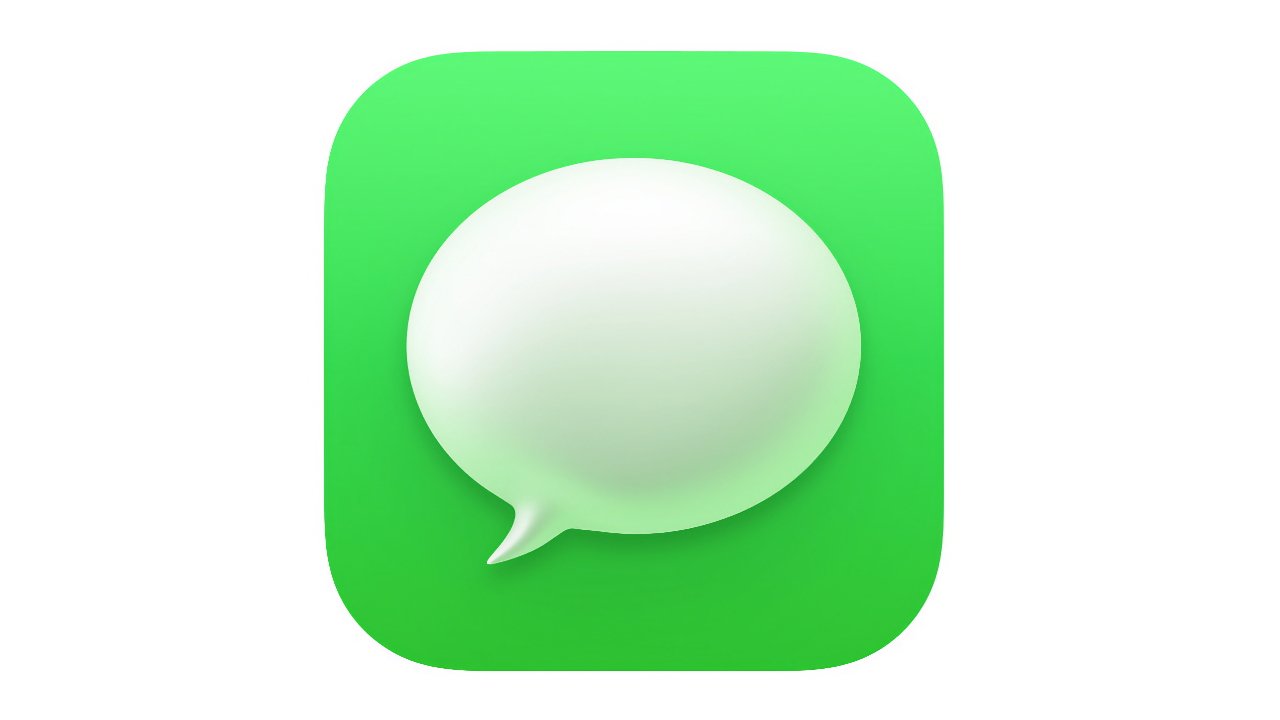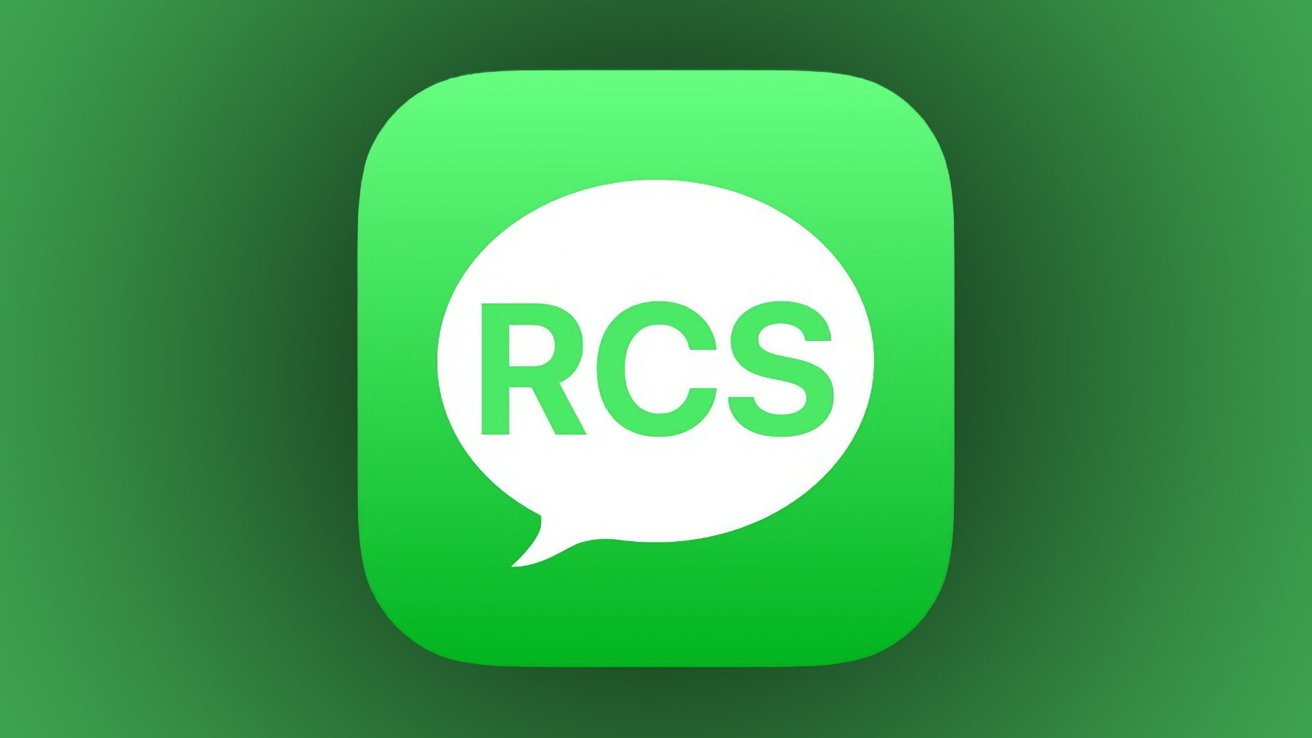EU backs down, won't force Apple to open iMessage to rivals
The European Union has accepted Apple's argument that iMessage isn't used enough to require that it be interoperable with third-party messaging services.

Apple's iMessage
, the EU passed its Digital Markets Act, which sets certain constraints on what it defines as "gatekeeper" keeper services. These included App Store and also messaging services, and initially Apple confirmed that its iMessage qualified for the EU's definition.
Apple later walked that back, however, and argued that iMessage specifically in Europe was too little used to meet the EU's threshold for gatekeeper status. In September 2023, both Apple's iMessage and Microsoft's Bing were given a reprieve while the firms' arguments were heard.
Now the EU has announced that it has closed the investigation into both of these services.
"In its decision of 5 September 2023," says the European Commission's daily news report, "the Commission considered that the rebuttal requests made by Apple and Microsoft deserved an in-depth analysis."
"Following a thorough assessment of all arguments, taking into account input by relevant stakeholders, and after hearing the Digital Markets Advisory Committee," it continues, "the Commission found that iMessage, Bing, Edge and Microsoft Advertising do not qualify as gatekeeper services."
Consequently, the Digital Markets Act does not apple to iMessage. That means it will not be required to allow users of third-party messaging rives to exchange messages, send files or make video calls across different apps.

Apple will add RCS support to iMessage
Instead, iMessage can continue to run exclusively on Apple devices, and retain its sometimes divisive blue and green text bubbles.
The EU's new ruling is unlikely, however, to change the fact that Apple has now announced its iMessage will support RCS later in 2024. RCS is a standard messaging protocol that Google has repeatedly pressed Apple to adopt.
The European Union's position
The EU had initially established that iMessage, and the other services, had "met the quantitative thresholds" as defined in the Digital Markets Act. However, it says that Apple's "rebuttal arguments" gave an explanation for "why despite meeting the quantitative thresholds, these four core platform services should not, in their view, qualify as gateways."
As yet the European Commission has not detailed those rebuttal arguments regarding iMessage. It says that "non-confidential versions of the decisions" will be published.
"The Commission will continue to monitor the developments on the market with respect to these services, should any substantial changes arise," it continues. "The decisions do not affect in any way the designation of Apple and Microsoft as gatekeepers on 5 September 2023 as regards their other core platform services."
Those other core platform services include the App Store, where Apple has ultimately been unsuccessful in arguing against the EU's ruling.
In that case, Apple's argument centred on a claim that it does not operate one App Store that qualifies as a gatekeeper, it instead runs five separate ones that do not. Those separate stores were for the iPhone, iPad, Mac, Apple TV, and Apple Watch, which were all live at the time of the EU's original ruling.
Apple had already announced a sixth store for the Apple Vision Pro, but it didn't go live until the headset was launched.
Read on AppleInsider

Comments
I don't think encryption part of what Apple promised at least initially...
But what you can’t do is expect e2e encryption to work without a coordinated service & equipment between vendors. Current the Google-proprietary RCS spec doesn’t include that, making it not much better than plain ole SMS & MMS. Apple said when RCS gets non-proprietary support they would implement it.
While many here assume Apple's announcement of RCS coming to iMessage was in response to the EU's DMA, it might actually be due to China. Unlike European regulators who Apple feels free to argue with or if need be "maliciously comply", China is in the process of mandating RCS (without encryption for obvious reasons) despite Apple's preferences.They are a government that when they tell Apple to jump it's only a question of how high. There is no such thing as malicious compliance with China's mandates.
Without integrating RCS, Apple would be banned from China's smartphone market sometime later this year. It wasn't because of the EU if Gruber's sources are to be believed. Further, if those sources are correct I would not hold out hope for E2EE coming to the service with iMessage either even if it makes it into the standard. China requires source code be submitted for inspection in order to "ensure the security and privacy" of the algorithms used before that encryption method is permitted in the country.
https://en.wikipedia.org/wiki/Messages_(Apple)
They could not since it's the iPhone model itself that needs certification.
By the way, Google does not offer Google Messages in China, nor any other Google Android services. They have no control over what phone manufacturers there do with the OS or even try to. So why did you make such a weird atempt at obfuscation with half your comment about Google and Android?
I can guess why.